Perfume has been present in Chinese history since ancient times, and just like people in the West, Chinese like to smell good and invest in good perfume for themselves or as gifts. As incomes are rising, men and women buy more and more fragrances, and as a result, China’s fragrance market is growing, recording almost 17 billion RMB in sales in 2022.
The perfume industry in China should be especially interesting for foreign brands, as Chinese fragrance enthusiasts prefer foreign luxury brands over domestic brands. Therefore, in this blog post, we will give an overview of the market insights and tips on how to launch products in the Chinese fragrance market.
Perfume has a long history in China
Perfume has been used by the Chinese people for centuries, dating back to ancient times. During the Han dynasty (202 BC–220 AD), incense was used to aid in healing and meditation, with many perfumes being derived from flowers, balsam, and other fragrant plants. As the use of perfume spread through China during this period, it became popular among the ruling classes and nobility, who began using personal scents after bathing or exercising to improve their health and ward off illness.
The Chinese have long believed that certain fragrances could bring good luck, and fortune, or even induce a romantic mood – something that is still widely practiced today. Perfume continues to remain an important part of defining style within Chinese culture whether it’s a signature scent worn daily or special occasion fragrances gifted during holidays like Spring Festival.
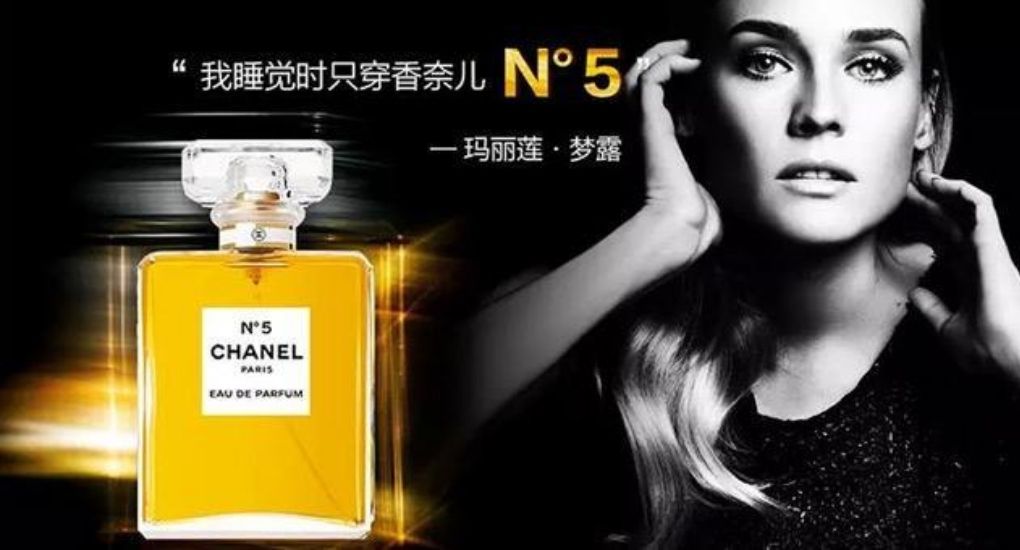
Although the history of perfume in China dates back to ancient times, up until recently it was considered a luxury reserved for the ruling class and wealthy people. But nowadays perfumes became very popular in China, with many people owning more than one bottle of luxury scents at home.
Moreover, perfumery products stayed quite limited because of big players such as Dior, Chanel, and Burberry. As a matter of fact, people who bought perfume preferred to purchase big brands because they were able to identify. In addition, we can notice that the choice to wear fragrances is much influenced by advertisements, magazines, or related advice.
Changes in Chinese attitude towards perfume in modern society
Because people are traveling, several factors can explain the evolution of this industry. First of all, the luxury industry grew tremendously during these last years. Chinese consumers are traveling abroad, especially the middle class. So they tend to buy more perfume in order to give them as a gift and not to wear it themselves. This is one of the reasons that explain why the bottle is very important.
Nonetheless, we can notice a growing number of people that buy fragrances for themselves, in other words, for their own use. Actually, Chinese people care about their personal image and this makes an interesting opportunity. The increase in income can serve as an explanation for the rising demand for this category of consumption.
What is interesting is the fact that although the Chinese perfume market is not big, the consumption unit price is higher than in other countries. It means that Chinese people prefer to pay more for perfume than average consumers of the global market. Chinese consumers prefer high-end brands and care about the brand image, packaging, and shopping experience, willing to pay more for the best quality products.
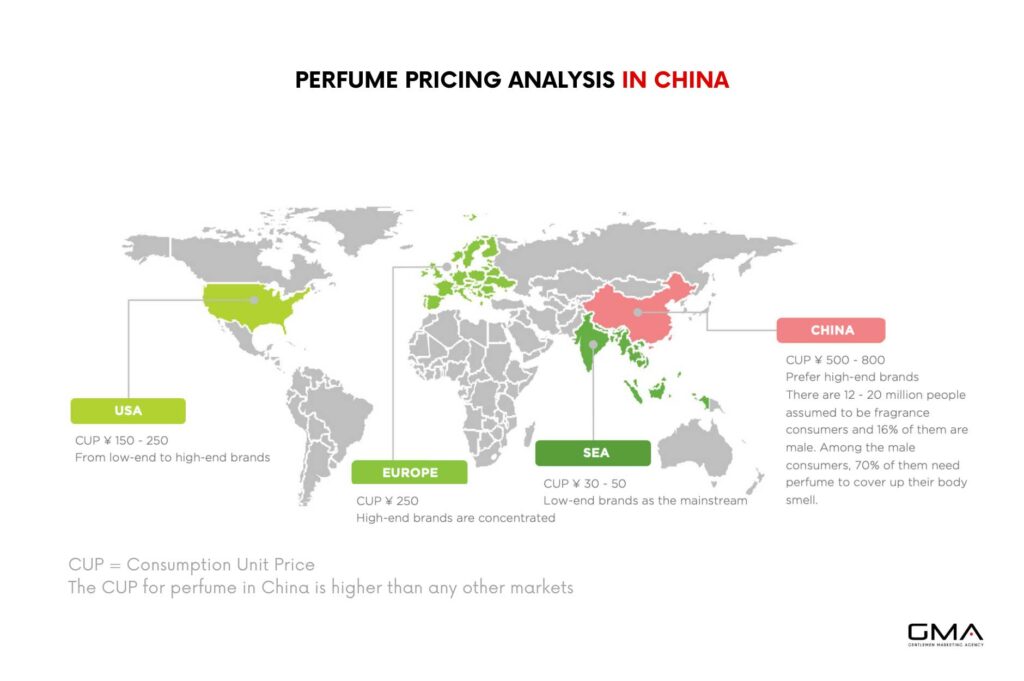
Commercial or niche fragrances?
Commercial fragrances are those that fit most people’s tastes. Products from Dior, Chanel, Armani are considered commercial perfumes and are desired by the majority of Chinese consumers, as they are perceived as luxury goods, but match the tastes of all interested customers.
But, as young Chinese consumers develop different tastes when it comes to luxury goods, China’s perfume market is also not free of this phenomenon. Commercial perfumes are believed to be boring and notorious, while young people prefer to have unique fragrances. It is said that ‘it’s better running into people with the same clothes than running into people with the same scent’.
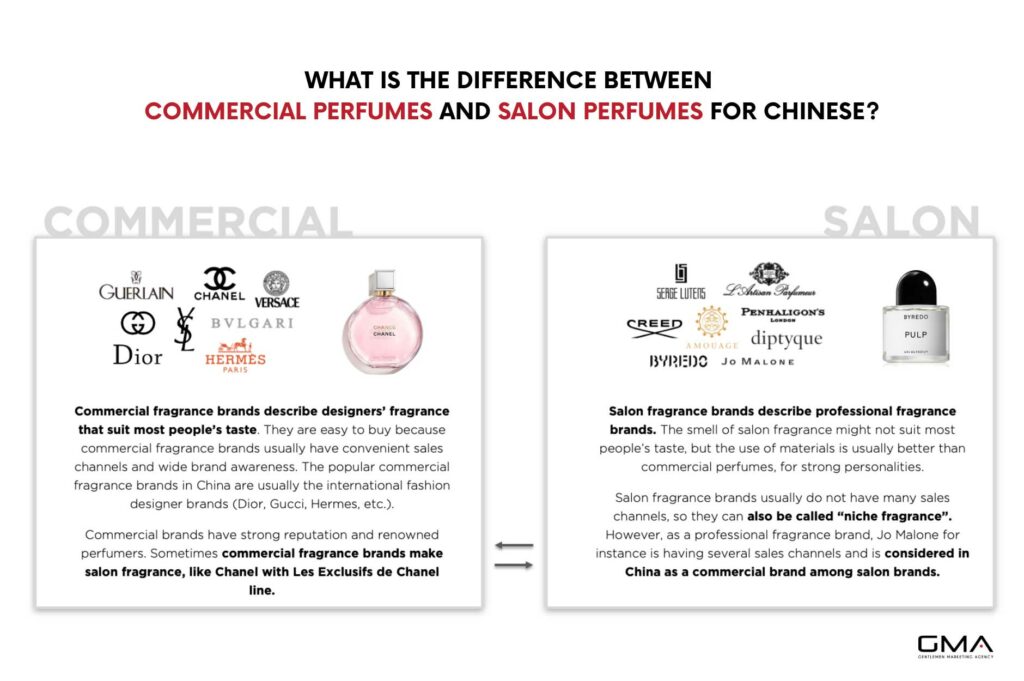
This change creates a demand for niche fragrance brands that are not easy to get and experiment with different scents that don’t match everyone’s liking. They are perceived as something hard to get, which makes them seen as a luxury, therefore people can pay big money for such perfumes. Compared to the uniformity of international brands, Chinese people are becoming more interested in woody, maritime, and herbal niche fragrances.
Young generations are dictating the trends in China’s fragrance market
The Chinese perfume market is changing as new consumers become the driving force of this sector. Millennials and Gen Z focus on different aspects and demand different things from brands. Those consumers are willing to pay extra for unique perfume and premiumization of services. They are looking for something different, as we mentioned earlier, they prefer niche brands.
Millennials and Gen-Z are showing a preference for customization in more than just fragrance – from custom skincare serums to personalized jewelry. In the perfume market, customers may select from an expansive selection of over 350 profiles from a scent library before further personalizing their product by adding unique features like color, bottle shape, or packaging options.

What luxury perfume brands do in China to succeed?
Some niche brands use innovative ways to attract Chinese consumers. For example, the French perfumer Diptyque decided to link ice cream flavors with fragrance in-store events. The British brand Jo Malone London did a partnership with hotels in order to do afternoon teas.
There are so many ways to enter the Chinese perfume market, and especially don’t forget how important product localization is in the Chinese market.
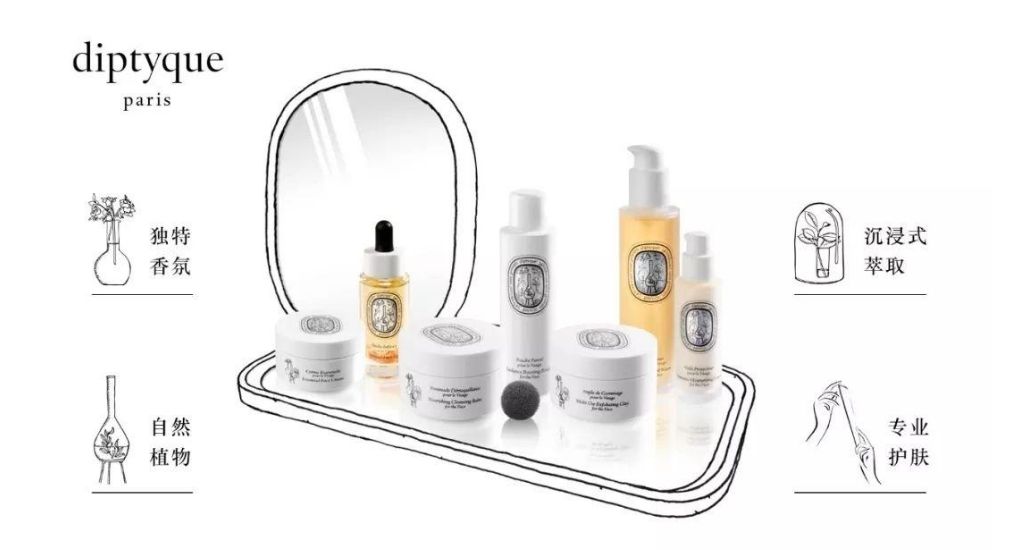
How to launch a perfume brand in China?
If you want to succeed in the fragrance industry in China, you need to adapt your product in order to meet the needs of Chinese customers. Using perfume is a way to express themselves for some consumers. This means that they are still getting used to it. They want something powerful but not too strong. Even though people use more fragrances than before, they still need time to learn more about fragrances, how to use them, and consider them as something that is enshrined in their daily life. It will take time to be a strong habit.
The market has been dominated by big players for a long time such as Chanel, LVMH, Coty, Procter & Gamble. L’Oréal, Estée Lauder, Mary Kay, Burberry, Salvatore Ferragamo and Avon represent 48,8% of China’s entire perfume market. These big brands have a strong presence online and offline. They put a lot of money into an advertisement in the press, the TV, and on the internet. Some luxury famous perfume brand house is famous because their branding insists on their position as a premium brand.
Localization is important for perfume brands
In order to enter the market, product localization is a must. The Chinese people have different habits and different cultures, so best-seller products are those adapted to the market.
You need to educate your consumers and show them an interest to buy the products of your brand. You have to manage your brand community in order to reach the younger generation as Chinese social media has an important role in Chinese social lives. In this way, you can enshrine the habit in the long term and develop your brand. It will guarantee penetration for your brand in the Chinese market. This “education” goes with an effective digital strategy in order to have maximum exposure.
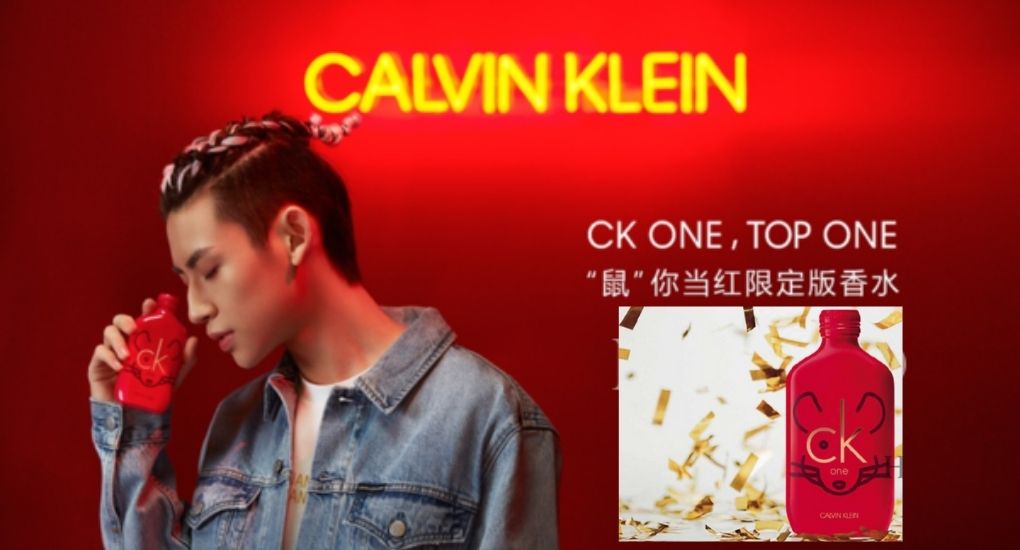
Understand your consumers in China
Because Chinese consumers are not yet really used to buying perfume for themselves you have to insert in your campaign an educating aspect. Then you have to think about how to use a perfume, the experience they could have by buying your products, and the exploration of senses.
Before launching a perfume line for the Chinese market, it’s good to know which scents are preferred in China. As we mentioned earlier, young consumers are looking for unique scents and don’t want to smell like other people.
Although European brands from France, Italy, and Switzerland are still very popular among Chinese consumers, now there are more and more local brands gaining popularity on the market. A Chinese fragrance brand can win the audience by understanding consumers’ tastes and shopping behavior.
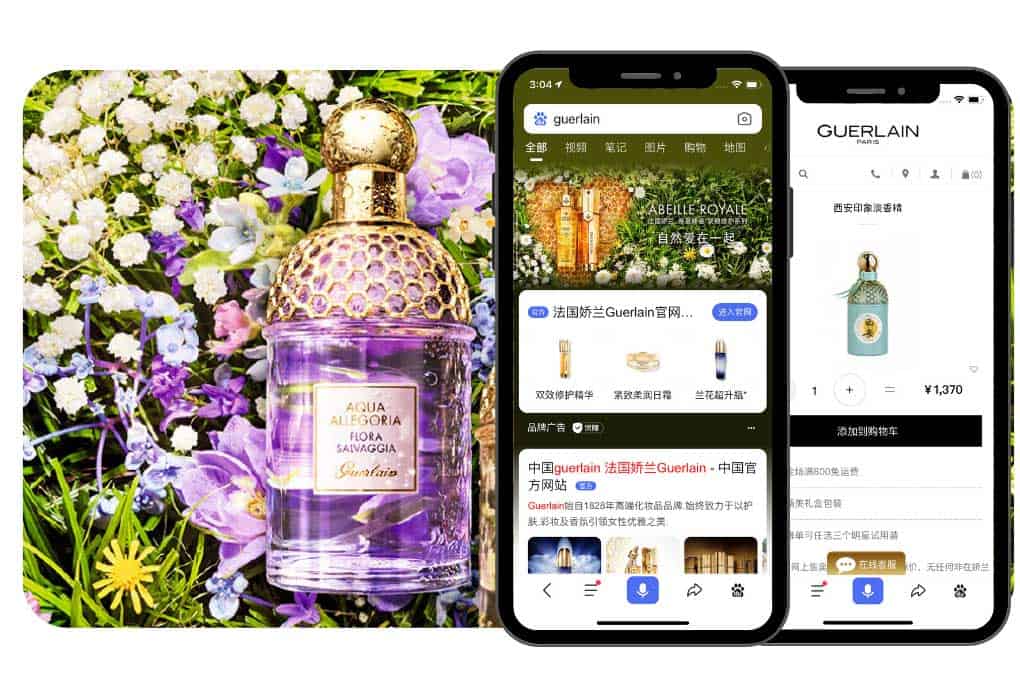
When it comes to tastes, Chinese perfume brands are known for ‘oriental scents’, incorporating traditional Chinese plants like jasmine, gardenia, white magnolia, and bamboo. Young consumers are also becoming more and more interested in woody, maritime, and herbal essences. It’s good to consider creating a dedicated line for the market and offer samples to see if your consumers in China would like to purchase such perfumes.
Offer samples to interest your consumers in new products
It’s advisable to offer samples to your Chinese consumers, as it’s a new trend on the market. In fact, brands like Creeds and Maison Margiela generate at least 50,000 to 250,000 RMB in samples fragrance sales.
Chinese shoppers are embracing the value of trial and error when it comes to buying perfumes – before committing to a full-size bottle, many Chinese netizens opt for samples first. This is mainly due to e-commerce’s strong foothold in perfume sales; as these products can’t be returned once purchased online, customers have made sample testing part of their purchase journey instead.
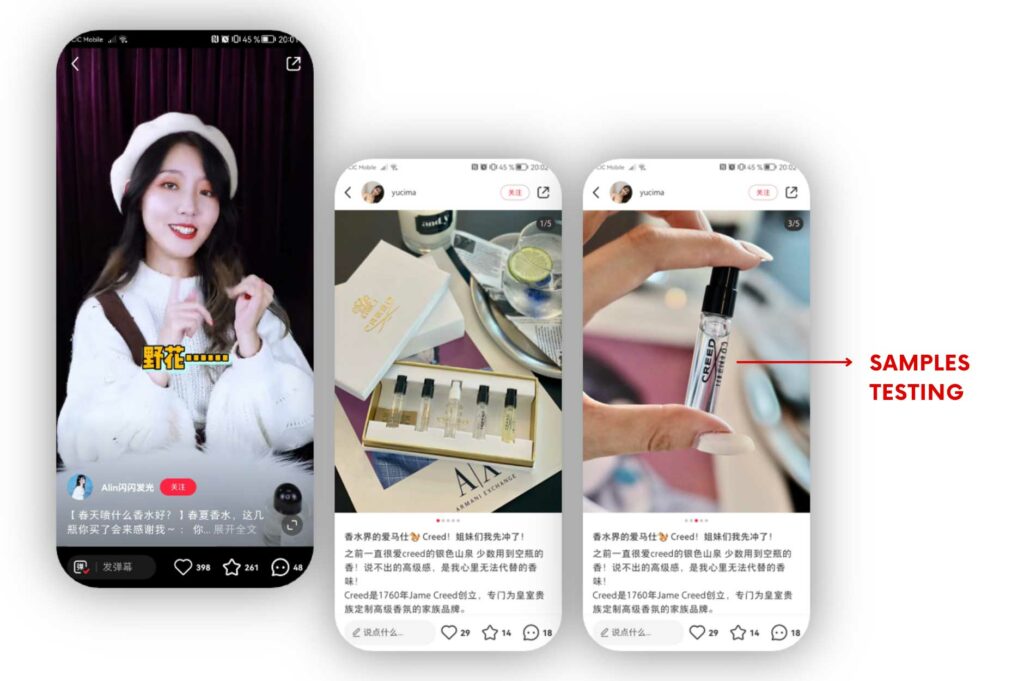
You can offer samples in your offline stores, but if you are relying on online, you can create sample packages of all your scents and offer them as a regular product, or add samples to orders during Chinese shopping festivals.
Strong branding works well in China
The digital sphere in China is very important. E-commerce is very developed. That is the reason why you have to create an efficient website in which consumers can easily find prices, discounts, and product presentations on the first page. It is really essential to have qualitative content and HD pictures to show your fragrances. Your website has to focus on and explain the experience.
Moreover, your website should be in Chinese of course, but in simplified Chinese, as it is the one people use in China mainland. Besides, your website has to be hosted in China or nearby so the content will be loaded quickly for a better user experience.
Work on effective Baidu SEO strategy
SEO & SEM are powerful for your brand awareness and brand recognition is essential for your entry into the Chinese market because Chinese consumer is very suspicious of unknown brands. Baidu is the most used search engine in China because Google is blocked by the Chinese Great Firewall. This is why it is important to put backlinks and maybe some money into advertisements.
Baidu occupies around 70% of the total market share, so if you want to do SEO & SEM in China, it is your first choice. But there are still other search engines that you can use, such as Sogou, 360, etc.
Apart from positioning your website well with the use of keywords and other SEO techniques, you can also participate in online forums and communities on Baidu, like Baidu Tieba or Zhihu, where people talk about brands and products and give their recommendations. You can help your reputation by mentioning your products there, but also help your SEO score in Baidu.
Chinese social networks and KOLs: the key to your perfume branding
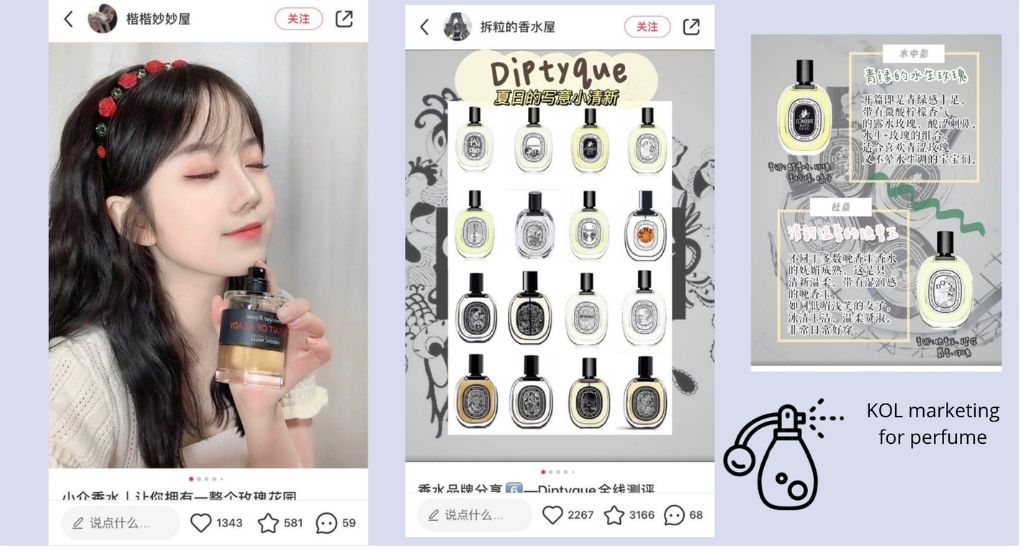
WeChat, Weibo and especially Xiaohongshu are cornerstones in your digital strategy. They are the tools you have to use to build your e-reputation because they offer you the possibility to exchange with consumers and to know what people think about you.
You can create official accounts, which allow you to send newsletters (WeChat), organize lucky draws and other gamification-related events for your audience (Weibo), you can have your own stores on those platforms, post different content formats, offer live-streaming sessions and more. Although it’s important to have a website and have a multichannel marketing strategy, social media platforms are where everything happens and it’s definitely the core of your strategy.
You can also collaborate with KOLs to promote your brand. They represent a good way to attract lead generation thanks to their followers. However, it is necessary to choose them well because they must fit with your brand image, and pay attention to the data they announced because the data can be fake.
We can help you launch your perfume brand in China!
GMA, with its expertise, can help you to realize your project in China. If you want to utilize Chinese digital channels to work on your brand awareness and brand credibility, as an expert in Chinese digital marketing, we are at your service.

We have 10 years experience in the Chinese market, especially in luxury sector. We worked with many luxury brands, also perfume brands, on their presence in the Chinese fragrance market.

Feel free to leave us a comment or contact us for 30 minutes of free consulting service.
Read more about the Chinese perfumes and fragrances market:
- The skincare market in China
- Tmall Perfume Route
- Bvlgari: The Success of Fragrance Customization in China
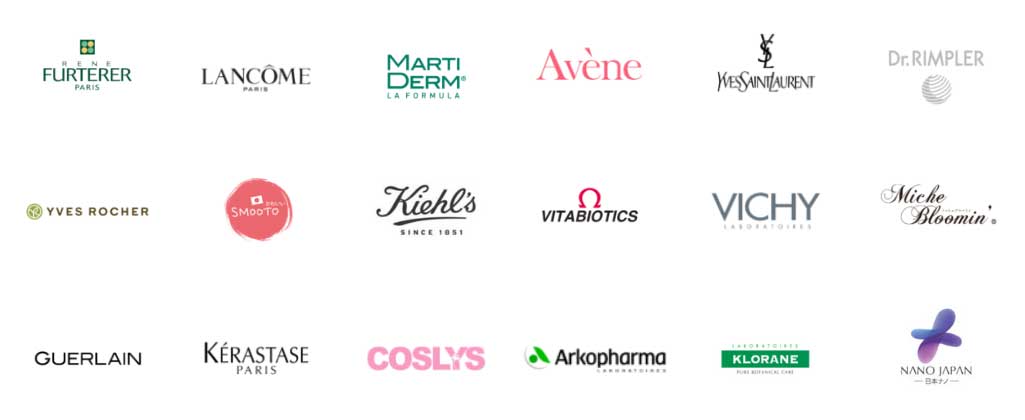

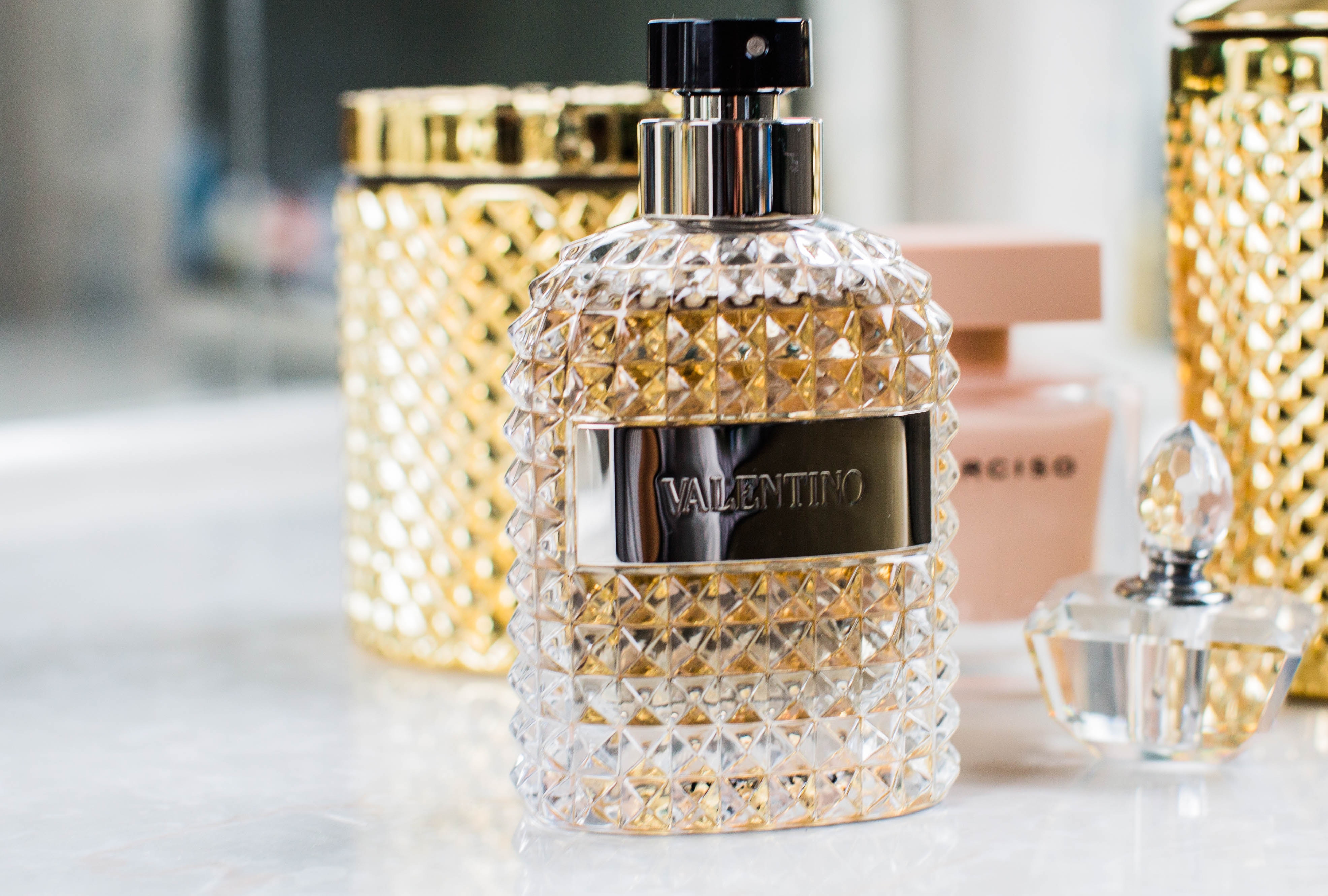
3 comments
Hazel Lynch
I’m interested in having my own perfume and body fragrance launched .
admin
Contact us. Hazel
Muhammad Daniyal Baloch
I want to launch a perfume and beauty products.